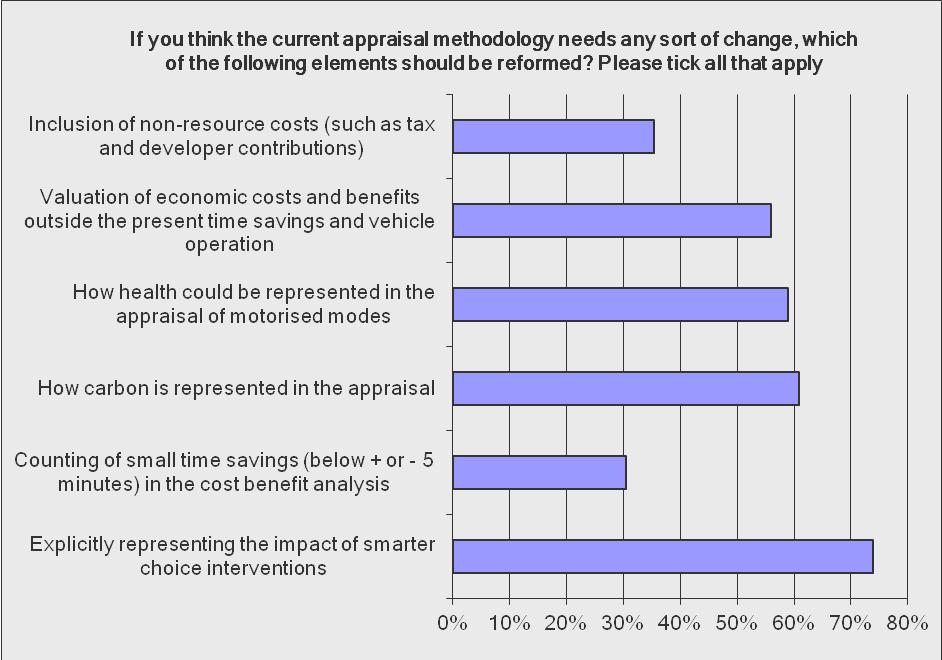The Transport Planning Society annual survey of its members reveals what has changed and what hasn’t in the face of the recession. To download this report please click here.
Spending
Of the 16 options rated, changing the way we travel to consume fewer resources, but through the “Smarter Choice” approach rather than pricing, is still number one spending priority – as it was last year. Support for walking and cycling has risen to second place, with rail capacity improvements (other than High Speed Rail) in third place. HS2 has nevertheless gained is support, rising from 12th to 9th (support up 35%).
However, road maintenance has fallen from 2nd to 5th place, and bus revenue support from 5th to 10th – scores for both were down 30%. Perhaps this reveals the difficult choices in the face of cuts, with a focus on maintaining investment , particularly in the medium term. This is supported by a 40% rise in support for urban rapid transit – rising from 7th to 4th place.
Revenue
The 10 options for raising money nationally showed far less change (less than 10% change in all cases), with aviation dropping from 1st to 2nd, swopping places with national road user charging. Tolling new roads gained ground, with LRUC and fuel duty increases losing slightly.
For local fund raising, changes were even more modest, with the top 3 choices the same as last year: a transport levy on new development 1st; followed by workplace parking levies; then charging for all parking, including retail.
Industry confidence
Even fewer than last year believed that work will return soon to previous levels (11%). However, slightly fewer thought that the short term would be worse (19% from 24%), and slightly more believing that things would start to recover after further short term problems, although not to previous levels.
This reflects the views expressed in the discussion groups held as part of the TPS skills monitoring, and at TPS national and regional events.
Appraisal
Response to this indicates some progress by DfT, but much still to be achieved – 43% of respondents felt that appraisal in its current form fails to reflect key policy drivers and requires major reform
(41% last year). The Department has reviewed its technical requirements but it would appear that some practitioners are unimpressed.
Specifically, respondents felt that change is needed, particularly to explicitly represent the impact of smarter choice interventions (74% up from 64.5%), how carbon is represented in appraisal (61% down from 67%), how health could be represented in the appraisal of motorised modes (59% up from 56%). Despite progress, the valuation of economic costs and benefits outside the present time savings and vehicle operation was still felt to need reform (56% down from 65%). A matter of continued debate, 30% of respondents (down from 40%) suggested that the counting of small time savings (within five minutes) in the cost benefit analysis should be reconsidered; 35% expressed the view that non-resource costs such as tax and developer contributions should be reviewed.
The appraisal process could also be influenced by the localism agenda and a possible need for a proportional approach to appraisal, better reflecting the scale of the project to the quantity of analysis required. Appraisal remains an important issue to ensure that funding decisions are well-informed and reflect fully the value of the options available.
Keith Buchan, TPS Chair, said
“The profession are adjusting to the impact of the recession and there are important messages for decision makers, both in terms of continuing to pursue demand (and resource) management, and in terms of how to target future investment in sustainable modes.”
The charts referred to in this release are attached below.
Question 1:
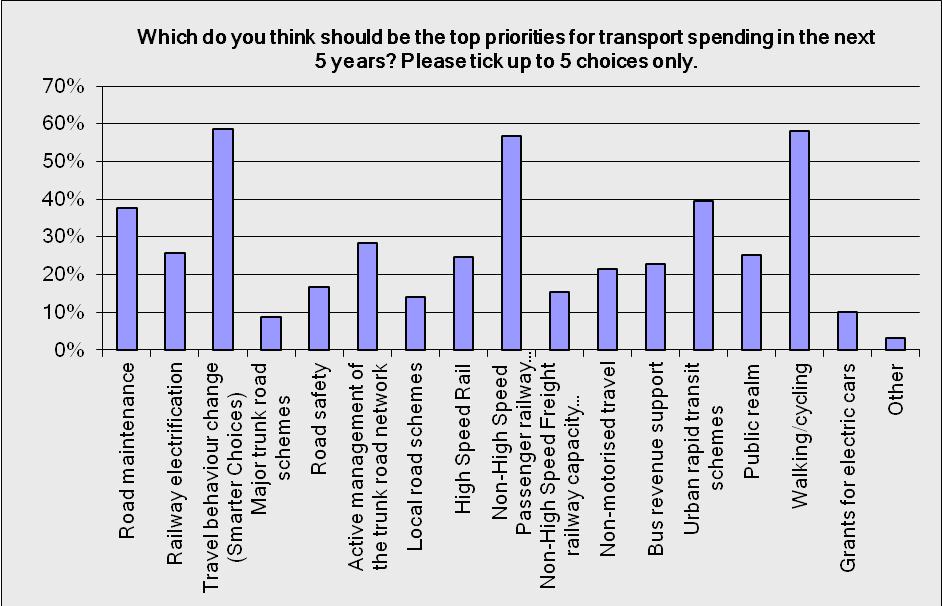
Question 3:
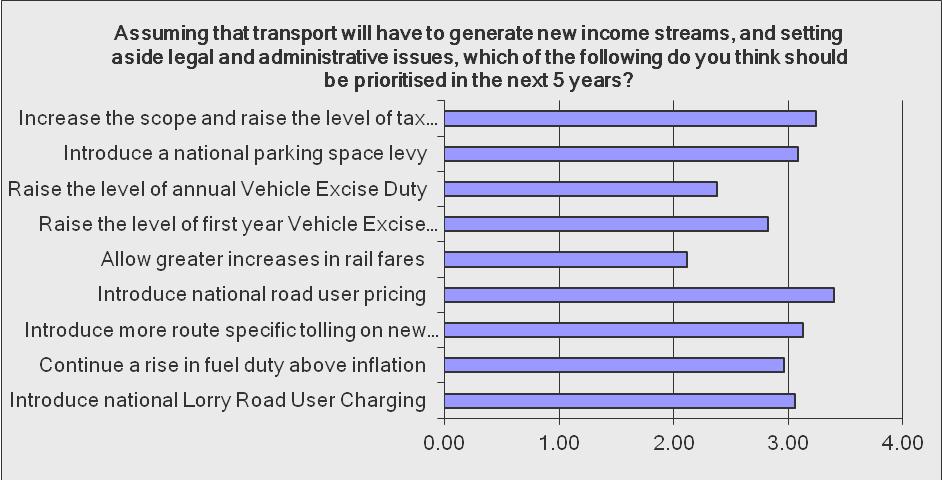
Question 5:
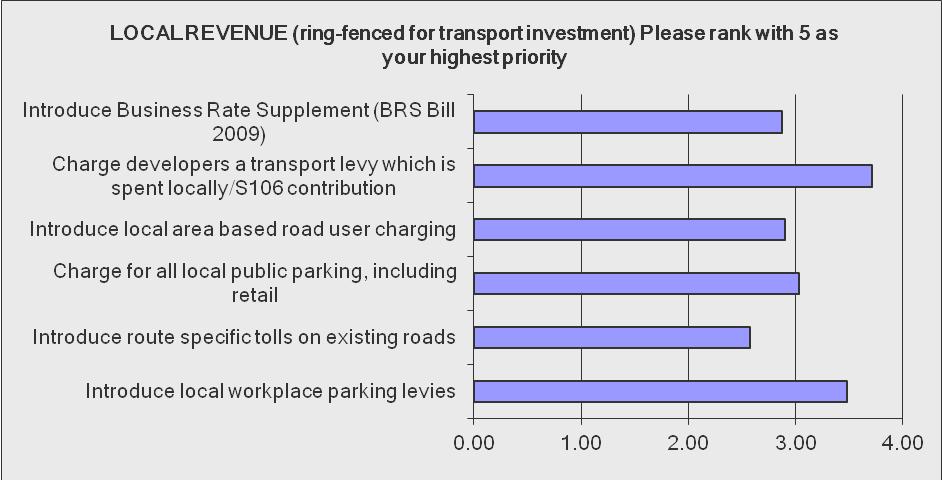
Question 9:
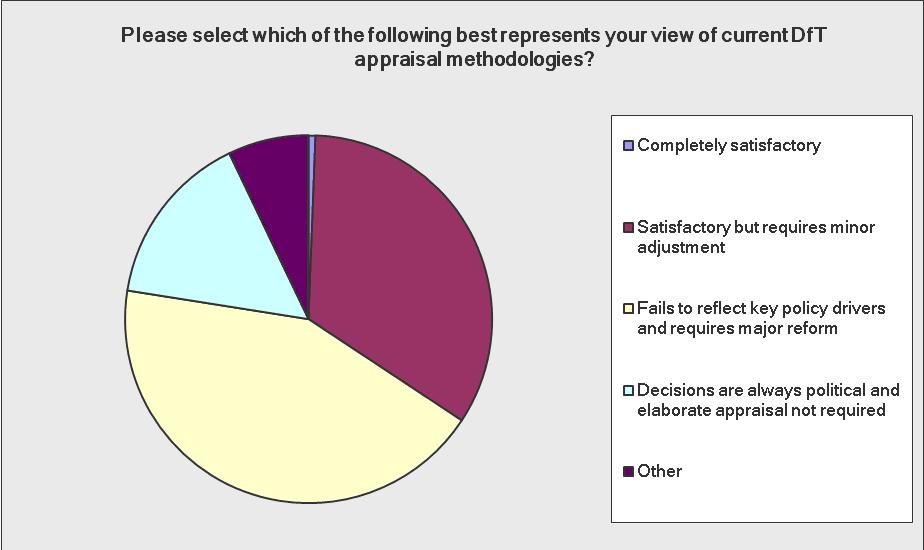
Question 10:
